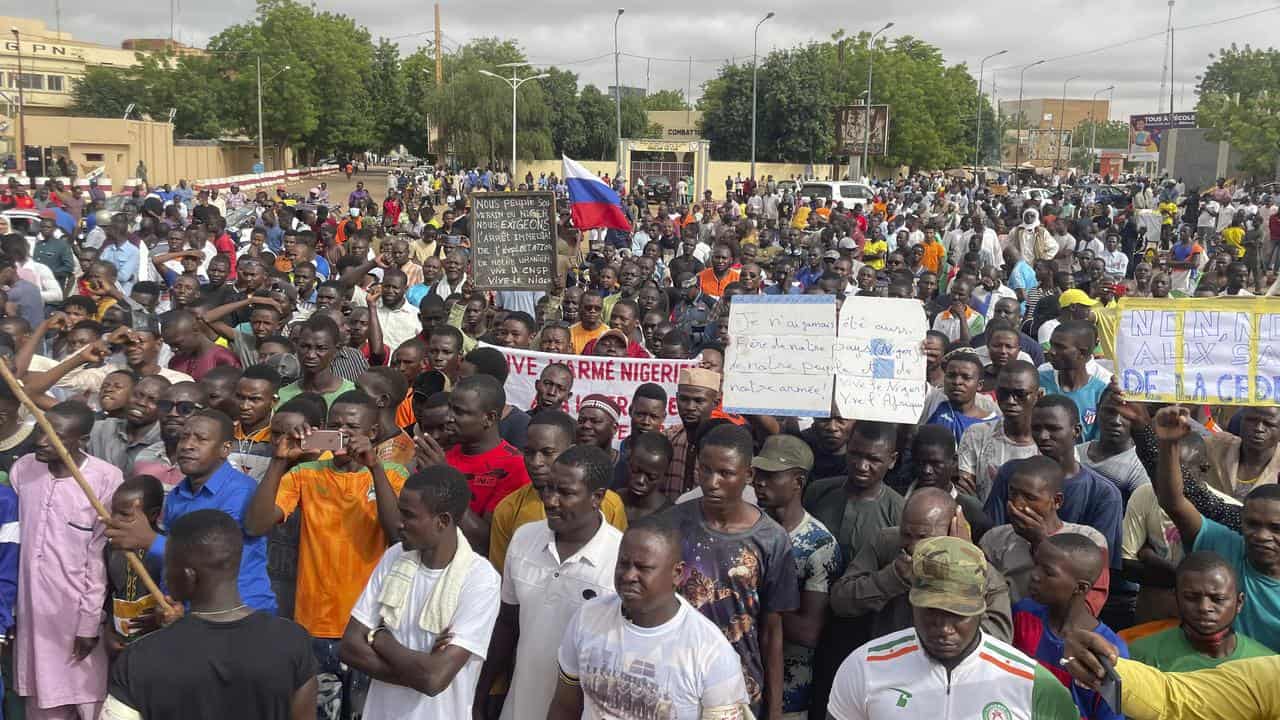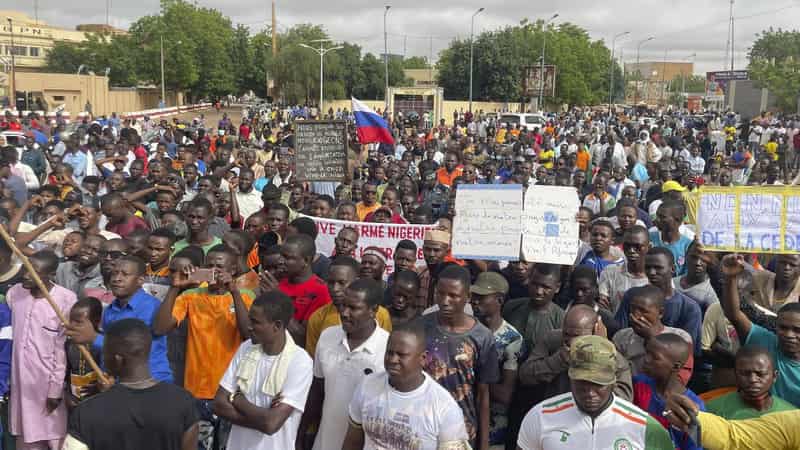
Hundreds of supporters of Niger's military junta have marched in the capital Niamey on Thursday to protest against West African sanctions, as the region's defence chiefs were due to wind up talks on a possible intervention to restore democracy.
General Abdourahamane Tiani, the former head of Niger's presidential guard, confined President Mohamed Bazoum to his residence last Wednesday and declared himself head of state in the seventh coup in West and Central Africa since 2020.
The main regional bloc, the Economic Community of West African States (ECOWAS), has imposed sanctions and said it could authorise the use of force if soldiers did not restore Bazoum to power by Sunday.
It has taken its hardest line yet with Niger, saying it had to show that it "cannot only bark but can bite".
Like the recent coups in neighbouring Burkina Faso and Mali, Niger's military takeover has come amid a growing wave of anti-French sentiment, with locals saying they want the former colonial ruler to stop interfering in their affairs.
France has between a thousand and 1500 troops in Niger, helping to fight an Islamist insurgency that has spread across the region.
Western countries are concerned Niger could turn towards Russia as an ally instead as some of its neighbours have done.
In a televised address on Wednesday night, Tiani vowed not to bow to international pressure to step down and called the sanctions "inhumane".
He said he rejected any foreign interference but was open to dialogue within the country.
"We have always listened with humility to all the parties concerned and are open to dialogue so that ... together we can create the conditions for a peaceful transition that should lead to elections within a relatively short and reasonable time," he said.
He did not give any timeline.
West African defence chiefs meeting in Nigeria were due to conclude their discussions about possible intervention in Niger, although they have said this would be a last resort.
The goal of the two-day meeting was to draw up a plan for an eventual military intervention to restore constitutional order, according to a statement from Ivory Coast's National Security Council.
The regional bloc also said on Wednesday it had sent a Nigerian-led delegation to Niger to negotiate with the coup leaders.
However, on Thursday a source in Nigeria's presidency said the delegation had not yet departed due to an issue relating to flight permits.
ECOWAS has struggled to contain democratic backsliding in West Africa and has vowed coups would no longer be tolerated after military takeovers in Mali, Burkina Faso and Guinea and an attempted coup in Guinea-Bissau.
Mali and Burkina Faso - also ruled by juntas - have said they will treat an intervention in Niger as a "declaration of war" against them and would withdraw from ECOWAS and come to Niamey's defence.
Tiani sent a general to both countries on Wednesday to shore up support.
"We are happy with the proximity that we have with our Malian brothers to thwart any attempt to destabilise our space," Niger General Salifou Mody said on Malian state radio, following his meeting there.
There are signs regional sanctions are starting to have an impact: Nigeria cut power supplies to Niger, while Nigerien truckers were stranded in limbo by border closures.
Thursday also marks the 63rd anniversary of Niger's independence from France.
United States President Joe Biden said in a statement marking the day Nigeriens had the right to choose their own leaders.
Niger has been an important Western ally in a fight against groups linked to al Qaeda and Islamic State, and the coup has been condemned by foreign powers who fear it could allow the militants to gain ground.
It is also the world's seventh-biggest producer of uranium, widely used for nuclear energy and treating cancer.









